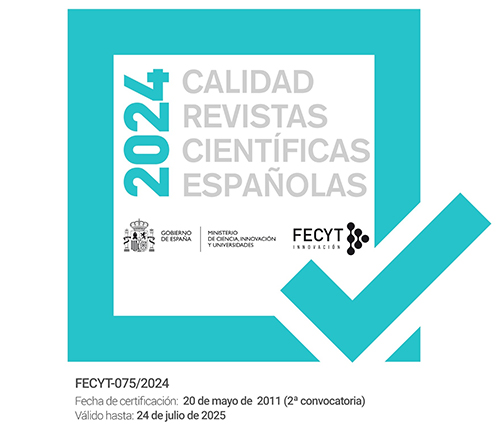A Transcendental Approach to Dream Skepticism
DOI:
https://doi.org/10.30827/trif.32695Keywords:
Dream Skepticism, Transcendental Philosophy, Descartes, Kant, PutnamAbstract
How can we know we are not dreaming? In this essay, I tackle this and related questions from a transcendental standpoint, by building a philosophical narrative centred upon three “giants”: Descartes, Kant, and Putnam. From each, I take some ideas and discard some others, with the aim of developing a historically informed, yet original, transcendental approach to dream scepticism. I argue that dreams can be distinguished from objective cognitions, since they do not regularly fulfil the transcendental conditions of such cognitions, e.g. the conditions of linguistic reference. Indeed, drawing on some insights by G. E. Moore and Wittgenstein, I further argue that the formulations of dream skepticism prove nonsensical: they cannot be linguistically understood. However, reflection on these skeptical formulations may lead us to a clear aesthetic understanding of the transcendental conditions of sense, as well as of the meaning of philosophically problematic words like “dream,” “perception,” and “reality.”
Downloads
References
AMERIKS, K. (2015), ‘On Reconciling the Transcendental Turn with Kant’s Idealism’; in S. Gardner and M. Grist (eds.), The Transcendental Turn, Oxford: OUP. DOI: https://doi.org/10.1093/acprof:oso/9780198724872.003.0003
APEL, K. O. (1975), ‘The Problem of Fundamental-Grounding in Light of a Transcendental Pragmatic of Language’; Man and World, 8, pp. 239-275. DOI: https://doi.org/10.1007/BF01255646
BELL, D. (1987), ‘The Art of Judgement’; Mind. 96 (382), pp. 221–244. DOI: https://doi.org/10.1093/mind/XCVI.382.221
CHALMERS, D. (2023), Reality +, London, Penguin Books.
CONANT, J. (2002), ‘The Method of the Tractatus’; in E. H. Reck (ed.) From Frege to Wittgenstein, Oxford, OUP. DOI: https://doi.org/10.1093/0195133269.003.0015
––– (2012), ‘Two Varieties of Skepticism’; in J. Abel and J. Conant (eds.) Rethinking Epistemology: Volume 2, Berlin and Boston, DeGruyter.
DIAMOND, C., (1988), ‘Throwing Away the Ladder’, Philosophy, 63 (243), pp. 5-27. DOI: https://doi.org/10.1017/S0031819100043102
––– (2000), ‘Ethics, Imagination and the Method of Wittgenstein’s Tractatus’; in A. Crary and R. Read (eds), The New Wittgenstein, London and New York, Routledge.
DENNETT, D. (1976), ‘Are Dreams Experiences?’; The Philosophical Review, 85 (2), pp. 151-171. DOI: https://doi.org/10.2307/2183728
DESCARTES, R. (1908), Recherche de la Vérité ; in C. Adam and P. Tannery (eds.), Oeuvres de Descartes, X, Paris, Leopold Cherf. [AT X]
––– (1996), Meditations on First Philosophy, Cambridge, CUP. [Meditations]
HINTIKKA, J. (1962), ‘Cogito, Ergo Sum: Inference or Performance?’; The Philosophical Review, 71 (1), pp. 3-32. DOI: https://doi.org/10.2307/2183678
HABERMAS, J. (1990), Moral Consciousness and Communicative Action, Cambridge (MA), The MIT Press.
HUME, D. (2007), An Enquiry concerning Human Understanding; Oxford, OUP. DOI: https://doi.org/10.1093/owc/9780199549900.001.0001
ICHIKAWA, J. (2008), ‘Scepticism and the Imagination Model of Dreaming’; The Philosophical Quarterly, 58 (232), pp. 519-527. DOI: https://doi.org/10.1111/j.1467-9213.2007.546.x
KANT, I. (1998), Critique of Pure Reason, Cambridge, CUP. [A/B] DOI: https://doi.org/10.1017/CBO9780511804649
––– (2002), Critique of the Power of Judgment, Cambridge, CUP. [CPJ]
––– (2004), Prolegomena to Any Future Metaphysics that Will Be Able to Come Forward as Science; in H. Allison and P. Heath (eds.), Theoretical Philosophy after 1781,
Cambridge, CUP. [Prol]
MACKIE, J. L. (1964), ‘Self-Refutation––A Formal Analysis’; The Philosophical Quarterly, 14 (56), 193-203. DOI: https://doi.org/10.2307/2955461
MALCOLM, N. (1956), ‘Dreaming and Skepticism’, The Philosophical Review, 65 (1), pp. 14-37. DOI: https://doi.org/10.2307/2182186
MOORE, A. W. (1997), Points of View, Oxford, OUP.
MOORE, G. E (1993), ‘Moore’s Paradox’, in T. Baldwin (ed.) Selected Writings, London and New York, Routledge. [MP]
NAGEL, T. (1974), ‘What Is It Like to Be a Bat?’; The Philosophical Review, 83 (4), pp. 435-450. DOI: https://doi.org/10.2307/2183914
PARRET, H. (1979), ‘Significance and Understanding’, Dialectica, 33 (3/4), pp. 297-318. DOI: https://doi.org/10.1111/j.1746-8361.1979.tb00758.x
PUTNAM, H. (1981), Reason, Truth and History, Cambridge, CUP. [RTH] DOI: https://doi.org/10.1017/CBO9780511625398
––– (1987), The Many Faces of Realism, LaSalle (Illinois), Open Court.
RAMSEY, F. P. (1990), ‘Philosophy’, in D. H. Mellor (ed), Philosophical Papers, Cambridge, CUP.
REICHENBACH, H. (1965), The Theory of Relativity and A Priori Knowledge, Berkeley and Los Angeles, University of California Press.
SACKS, M. (2006), ‘Kant’s First Analogy and the Refutation of Idealism’, Proceedings of the Aristotelian Society, 106, pp. 115-132. DOI: https://doi.org/10.1111/j.1467-9264.2006.00141.x
SHAKESPEARE, W. (2006), The Tempest; New Heaven and London, Yale University Press.
SPRIGGE, T. (1971), ‘Final Causes’; Proceedings of the Aristotelian Society, Supplementary Volumes, 45, pp. 149-192. DOI: https://doi.org/10.1093/aristoteliansupp/45.1.149
STRAWSON, P. (1959) Individuals. London and New York: Routledge.
––– (1966) The Bounds of Sense. London: Routledge.
––– (1997), ‘Kant’s New Foundations of Metaphysics; in Entity and Identity, Oxford, Clarendon Press.
STROUD, B. (1994) ‘Kantian Argument, Conceptual Capacity, and Invulnerability’; in P. Parrini (ed.) Kant and Contemporary Epistemology. Berlin: Springer Dordrecht. DOI: https://doi.org/10.1007/978-94-011-0834-8_13
––– (2011) Engagement and Metaphysical Dissatisfaction, Oxford, OUP.
WILLIAMS, B. (2005), Descartes; London and New York, Routledge.
WINDT, J. (2015), Dreaming, Cambridge (MA), MIT Press. DOI: https://doi.org/10.7551/mitpress/9780262028677.001.0001
WITTGENSTEIN, L. (1922), Tractatus logico-philosophicus, London, Kegan Paul.
––– (1969), On Certainty, Oxford, Blackwell.
WRIGHT, C. (1991), ‘Scepticism and Dreaming: Imploding the Demon’, Mind, 100 (1), pp. 87-116. DOI: https://doi.org/10.1093/mind/C.397.87
Downloads
Published
How to Cite
Issue
Section
License
Copyright (c) 2025 Simone Nota

This work is licensed under a Creative Commons Attribution-NonCommercial 4.0 International License.













